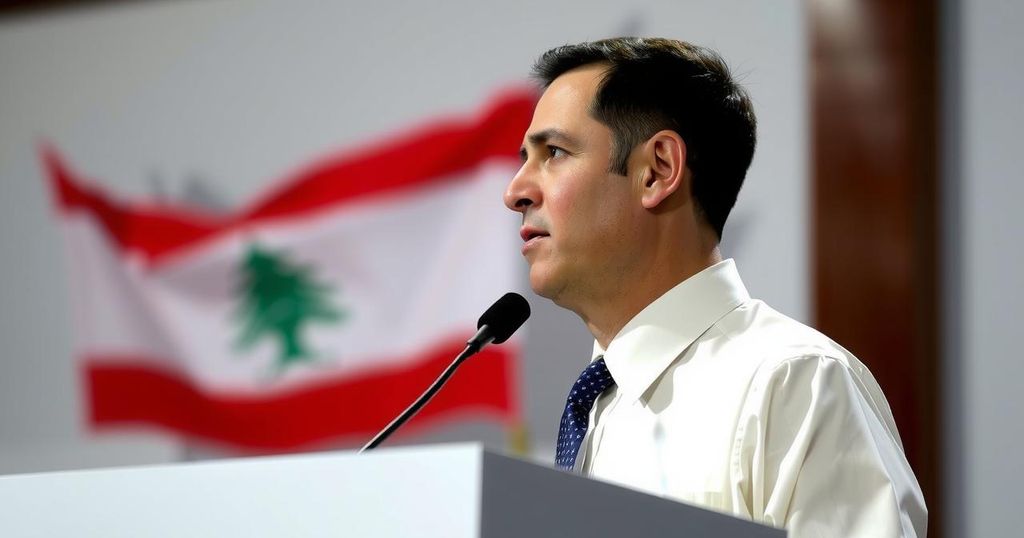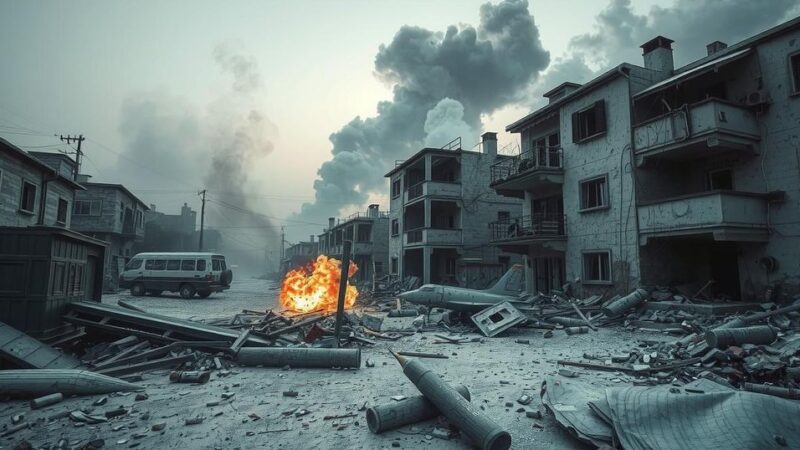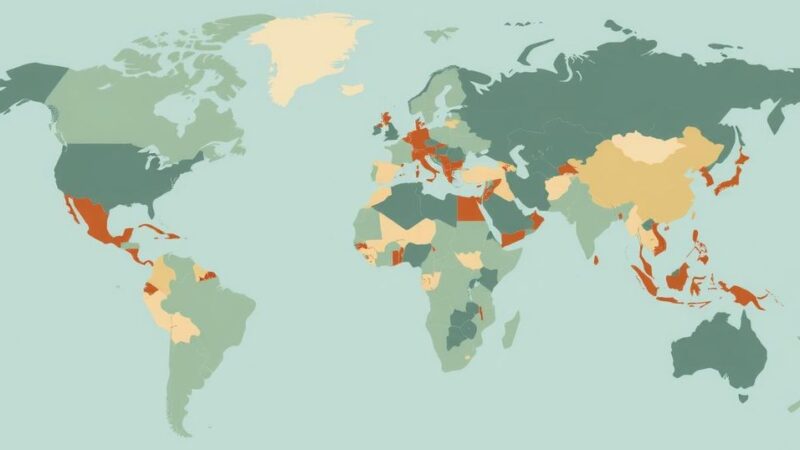Lebanon is poised to elect a new president after two years without effective leadership, amidst severe political and economic crises. The transitional government has struggled, particularly following a recent ceasefire between Israel and Hezbollah. Joseph Aoun, the commander-in-chief of the armed forces, emerges as a leading candidate, reflecting shifts in political dynamics. His presidency could symbolize a positive change for Lebanon, emphasizing the need for renewed governance and stability.
Lebanon stands on the brink of electing a new president after over two years without effective leadership. Scheduled for Thursday, this election comes at a critical time, as the nation confronts severe political and economic crises. The transitional government, led by Prime Minister Najib Mikati, has struggled to navigate these challenges, particularly following a recent ceasefire between Israel and Hezbollah. A functioning executive is crucial for maintaining this truce and addressing the pressing humanitarian issues arising from the conflict, including the return of internally displaced persons and Syrian refugees.
The upcoming parliamentary election will occur against a backdrop of a prolonged economic recession, with banks immobilizing deposits and the Lebanese pound experiencing a significant decline in value. The extensive damage inflicted by the conflict necessitates reconstruction efforts, yet the immediate priority remains solidifying the ceasefire. Political analysts stress that merely appointing a consensus candidate will not suffice; the selected president must genuinely represent a new direction for the country to be effective.
Intense negotiations within Lebanon’s fragmented political landscape have intensified as parties strive for viable candidates, adhering to the confessional system that governs political appointments. Among the frontrunners is Joseph Aoun, a Maronite Christian and the commander-in-chief of the armed forces, who has garnered cross-party support — a shift attributed to Hezbollah’s softened stance amidst recent political dynamics.
His acceptance by Hezbollah is noteworthy, illustrating a potential pivot in the group’s influence following recent hostilities. Analysts underscore Aoun’s reputation as the most trusted institution in Lebanon, the military. Advocates assert that his presidency would symbolize a fresh and promising chapter for Lebanon, as he possesses the support and credibility necessary to address escalating security challenges effectively.
Ultimately, the successful election of a president, alongside reforms to establish a new government and prime minister, is fundamental for Lebanon’s governance and stabilization. Such steps are essential for restoring operational legitimacy and functionality within the state apparatus, marking a potentially favorable development in Lebanon’s tumultuous political landscape.
The Lebanese presidential election is significant due to the prolonged absence of an effective leader, exacerbating a range of dire political and economic issues. The country has been grappling with severe economic challenges, including a drastic drop in currency value and frozen banking deposits. Moreover, the internal political scene is fragmented due to Lebanon’s diverse ethnic and religious factions, necessitating careful negotiations for leadership that accommodates the confessional system. Given the recent ceasefire between Israel and Hezbollah, an efficient leadership structure is paramount for addressing both internal displacement and broader humanitarian crises, making the election pressing and critical.
In conclusion, Lebanon’s upcoming presidential election represents a pivotal moment for the country’s political landscape, offering a chance for renewed leadership after years of stagnation. With intensified negotiations among fractious political factions, Joseph Aoun emerges as a potential candidate who could unify support across diverse groups. The election not only reflects the necessity of addressing the currents of economic and political crises but also symbolizes the hope for a more stable and functional governance that could effectively tackle longstanding challenges facing Lebanon.
Original Source: www.dw.com






